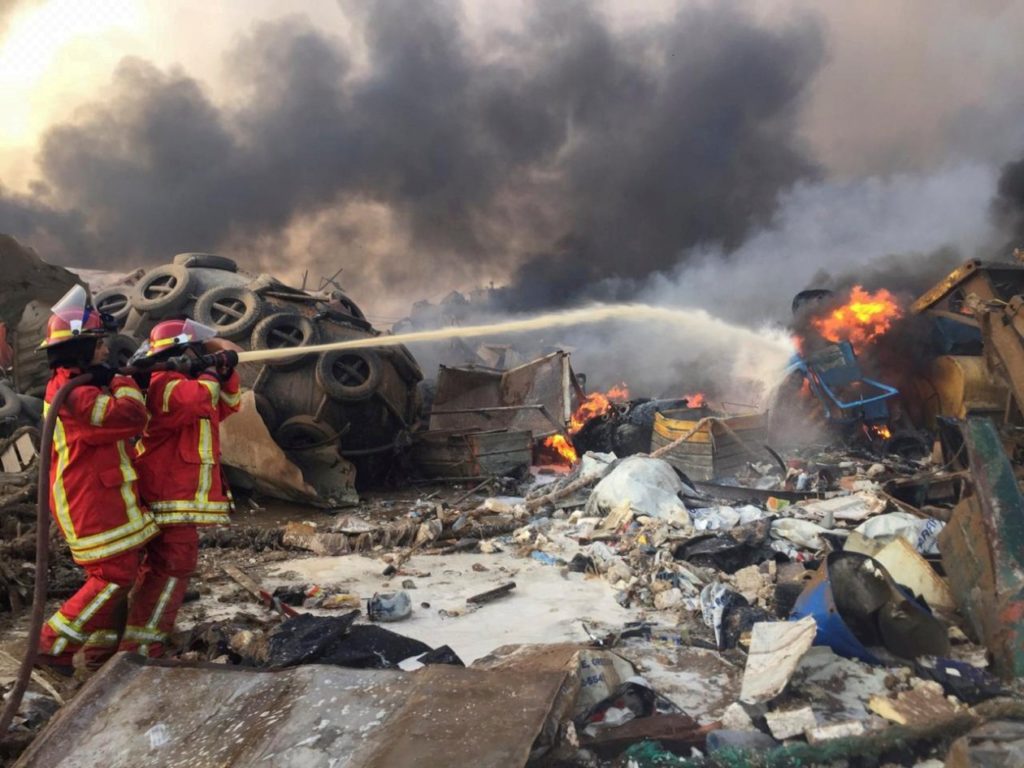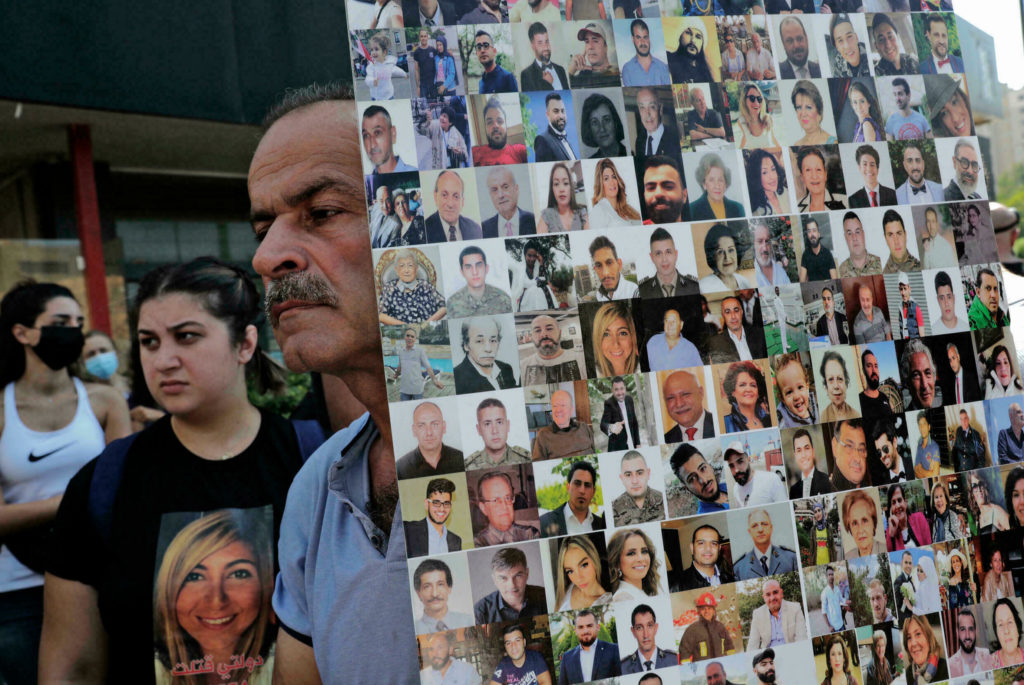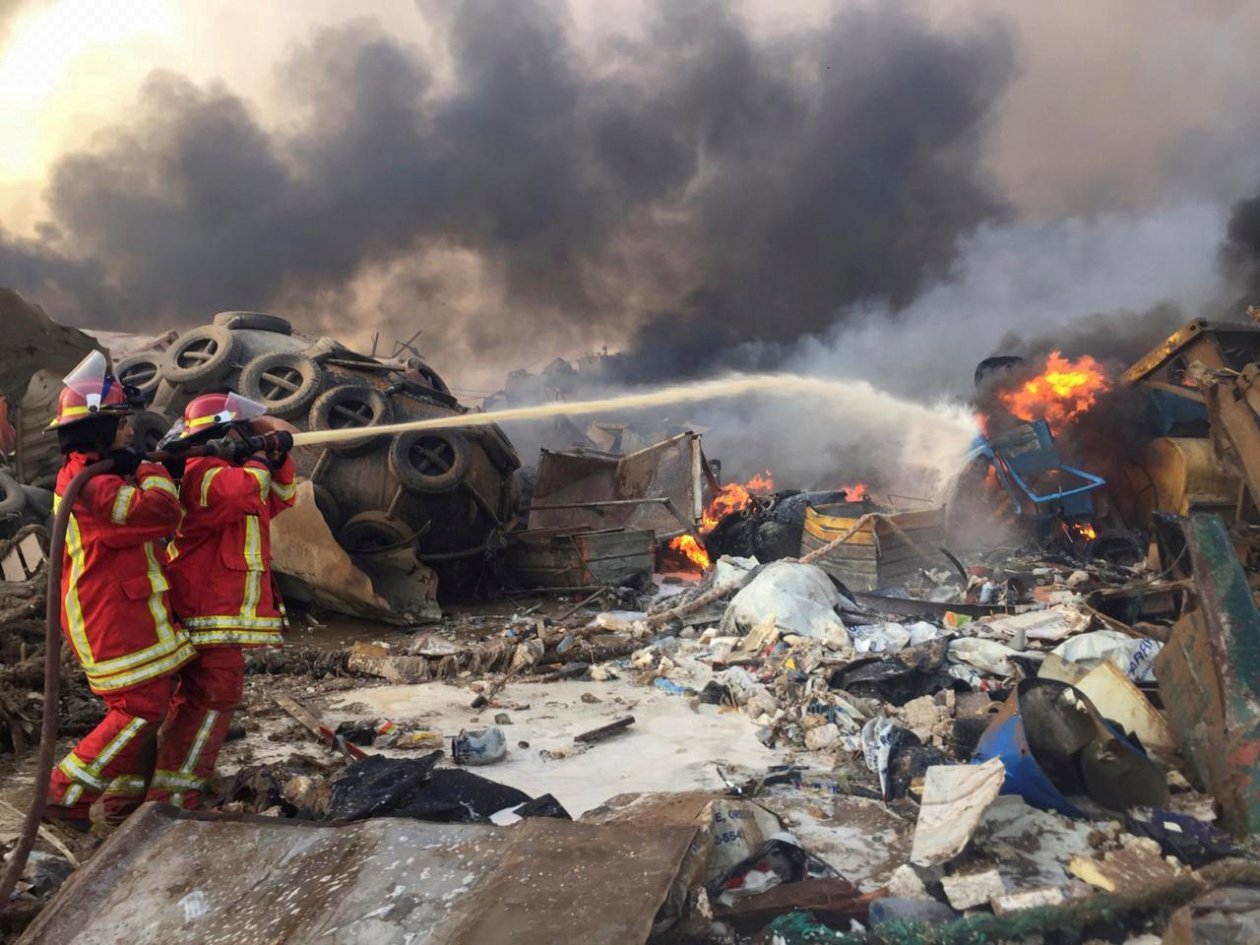
OVER 140 human rights groups, survivors and relatives of victims of the Lebanon port blast called Wednesday for a UN-backed international, independent and impartial probe into the disaster.
The explosion of hundreds of tonnes of ammonium nitrate fertiliser on the Beirut dockside on August 4 last year killed at least 218 people, injured thousands and ravaged entire neighbourhoods.
It emerged later that officials had known that the highly volatile substance had been left to linger unsafely at the port for years, in a warehouse close to residential neighbourhoods.
Lebanese politicians have rejected previous calls for an international probe into the disaster, but have also hampered the progress of a local investigation at every turn.
The 145 signatories — which include Human Rights Watch and Amnesty International, Lebanese rights groups, survivors, and relatives of the victims — called on member states at the United Nations Human Rights Council to establish “an international, independent and impartial investigative mission, such as a one-year fact-finding mission”.
“The failures of the domestic investigation to ensure accountability dramatically illustrates the larger culture of impunity for officials that has long been the case in Lebanon,” they said.
A first lead investigator was removed by a court in February after he charged former prime minister Hassan Diab and three ex-ministers with “negligence and causing death to hundreds”.
The second, judge Tarek Bitar, has also faced obstructions, including the parliament refusing to lift the immunity of former ministers who are also lawmakers so he could question them.

Bitar in August subpoenaed Diab for interrogation on September 20, but local media has reported the ex-premier has flown to the United States to see his family.
Diab’s government resigned in the wake of the blast, but remained in a caretaker capacity until this week when a new government finally took up its functions after 13 months of political wrangling.
The powerful Shiite Muslim movement Hezbollah and former prime ministers have accused Bitar of “politicising” the investigation.
(AFP/ FRANCE24)


Leave a Reply
You must be logged in to post a comment.